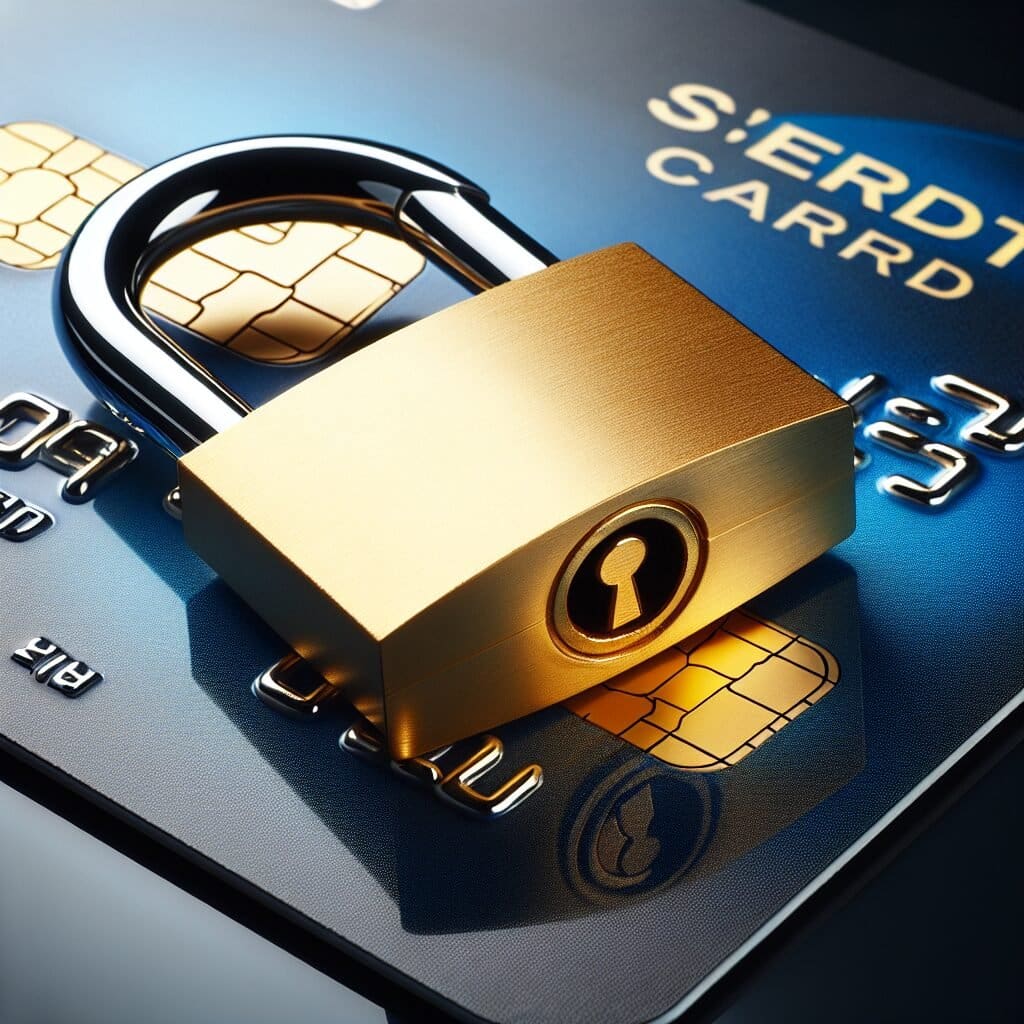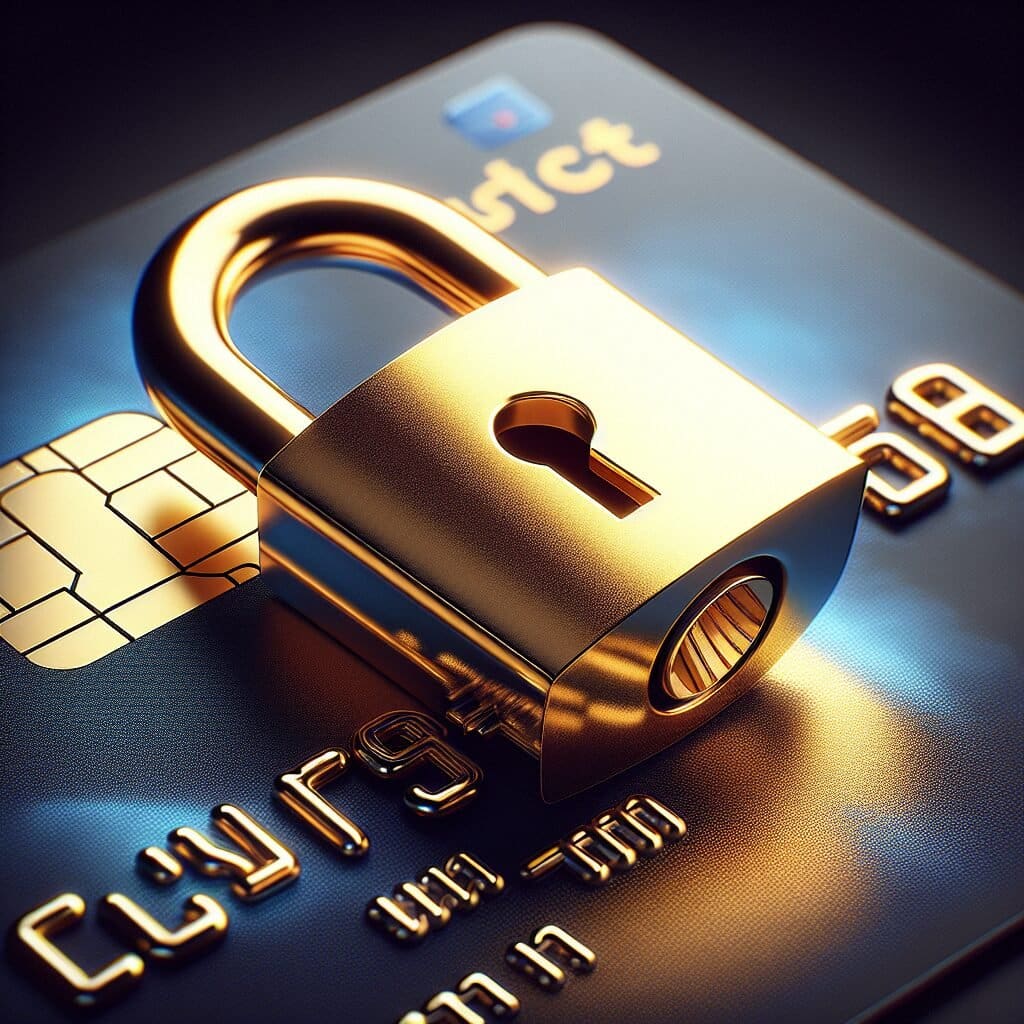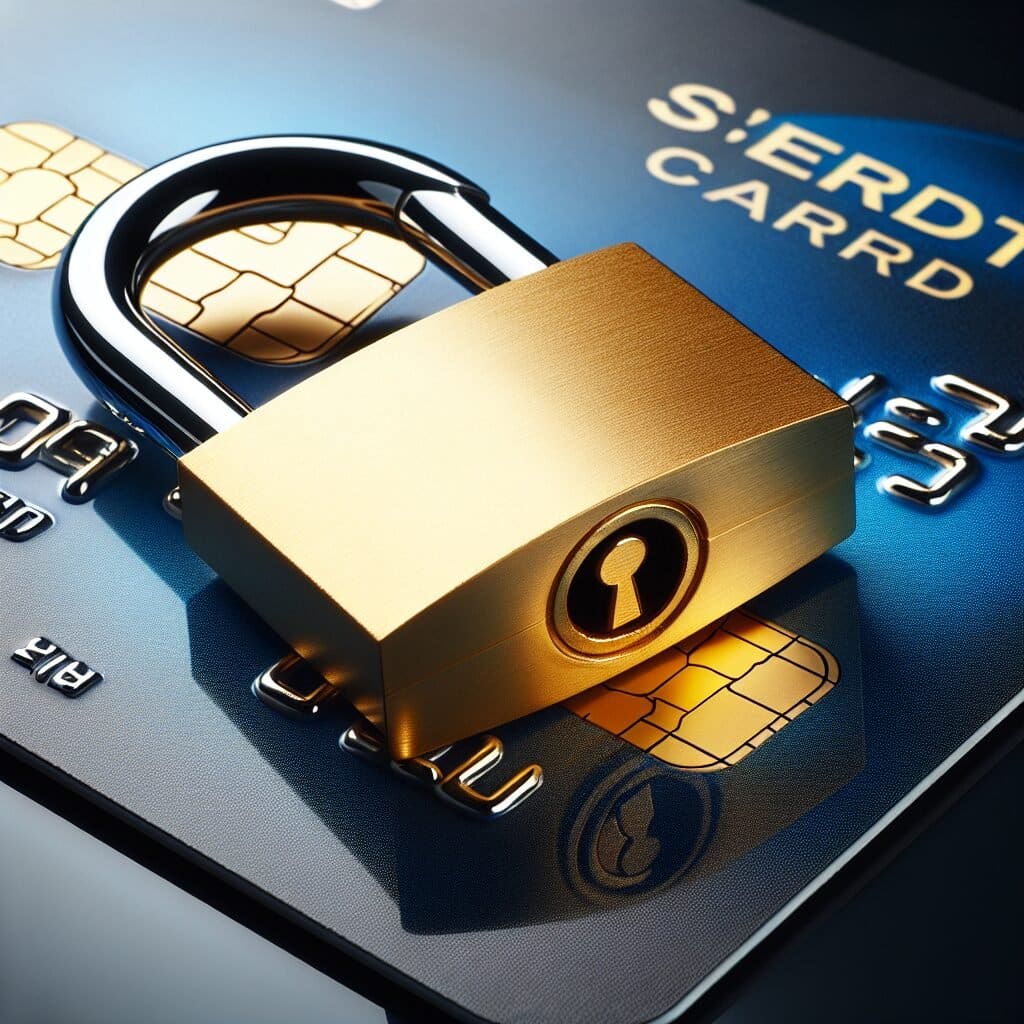If you're new to the world of credit or have faced challenges in the past, building credit can feel like an uphill battle. But fear not, because secured credit cards are here to make the journey smoother for you. These cards offer a solution for individuals with no credit history, helping you establish and improve your credit score. By providing a security deposit, you can open the door to a whole new world of financial possibilities. In this article, we explore how secured credit cards can become your stepping stone to building a strong credit foundation, paving the way towards a brighter financial future.
/L4DqOaRzo-c” frameborder=”0″ allowfullscreen>
How To Build Credit With Secured Credit Cards
Understanding Secured Credit Cards
Secured credit cards are a valuable tool for individuals who are looking to build or rebuild their credit. These cards require a security deposit, which serves as collateral and reduces the risk for the credit card issuer. In return, you are given a line of credit that is typically equal to the amount of your security deposit. Secured credit cards function similarly to traditional credit cards, allowing you to make purchases and build a positive credit history.
How Do Secured Credit Cards Work?
Secured credit cards work by requiring a security deposit that acts as collateral against the credit limit provided. This deposit is usually held in a separate account and is used to cover any potential defaults or missed payments. By making regular on-time payments and staying within your credit limit, you demonstrate responsible credit behavior to the credit bureaus, which helps to improve your credit score. Some secured credit cards may also offer the opportunity to graduate to an unsecured credit card after a period of responsible use.

A Guide To Building Credit With Secured Credit Cards
Key Features of Secured Credit Cards
Secured credit cards offer several key features that make them an attractive option for individuals looking to build credit. These features include:
-
Low Credit Requirements: Secured credit cards are accessible to individuals with no credit or poor credit. They are a great option for those who may have been previously denied for traditional credit cards.
-
Positive Credit Reporting: Your payment history and credit utilization will be reported to the credit bureaus, allowing you to establish a positive credit history. This can be beneficial when applying for loans or other credit in the future.
-
Security Deposit: The security deposit acts as collateral and reduces the risk for the credit card issuer. It is typically equal to your credit limit and is refundable if you close your account in good standing.
-
Credit Limit Increases: Some secured credit cards offer the opportunity for credit limit increases over time. This can be beneficial in further improving your credit utilization ratio and overall creditworthiness.
-
Accepted Everywhere: Secured credit cards are widely accepted, allowing you to use them for everyday purchases, online shopping, and travel expenses, just like a traditional credit card.
Benefits of Using Secured Credit Cards
Secured credit cards offer a range of benefits that can help you in establishing a strong credit history and building a higher credit score. These benefits include:
1. Establishing Credit History
If you have no previous credit history, secured credit cards provide a great opportunity to start building credit. By making regular on-time payments, you can begin establishing a positive credit history, which is crucial when applying for future credit.
2. Building Credit Score
Secured credit cards can also help improve your credit score. By consistently making timely payments and keeping your credit utilization low, you demonstrate responsible credit behavior, which is a key factor in determining your creditworthiness.
3. Flexible Credit Limits
Secured credit cards offer flexible credit limits based on the amount of your security deposit. As you demonstrate responsible credit use and your credit score improves, some secured credit card issuers may even increase your credit limit, providing you with more spending power.
4. Improved Financial Discipline
Using a secured credit card requires financial discipline. By budgeting and ensuring that you make payments on time, you develop valuable financial habits that can benefit you in various aspects of your life.

The Benefits Of Using Secured Credit Cards To Build Credit
Choosing the Right Secured Credit Card
When selecting a secured credit card, it's essential to do thorough research and consider various factors to ensure that you choose the right card for your needs. Here are some key considerations:
Researching Different Options
Take the time to research different secured credit card options available to you. Look for cards that have favorable terms, low fees, and positive reviews from other users. Compare the interest rates, annual fees, and additional features offered by different issuers.
Considerations for Selection
Consider your individual financial situation and goals when selecting a secured credit card. Evaluate factors such as the required security deposit, interest rates, and credit limit increases offered over time. Make sure that the card aligns with your budget and credit-building needs.
Comparing Fees and Terms
Carefully review the fees associated with the secured credit card. Some cards may have high annual fees or other charges that can eat into your available credit. Additionally, pay attention to the terms and conditions provided by the issuer to ensure they are fair and reasonable.
Applying for a Secured Credit Card
Once you have selected a secured credit card that meets your needs, it's time to apply. Follow these steps to successfully apply for a secured credit card:
Meeting Eligibility Requirements
Before applying, make sure that you meet the eligibility requirements set by the credit card issuer. While secured credit cards are typically more accessible than traditional credit cards, there may still be certain criteria you need to fulfill, such as being of legal age and having a valid social security number.
Completing the Application
Fill out the application form accurately and provide all the required information. This may include your personal details, employment information, and financial information. Double-check the information provided to avoid any errors or delays.
Providing a Security Deposit
Most secured credit card applications will require you to provide a security deposit. This deposit is typically equal to your desired credit limit and is used as collateral. The deposit can often be paid online or by mail, depending on the issuer's requirements.
Building Credit with Secured Credit Cards
Using a Secured Credit Card
Once you have been approved for a secured credit card and have received it in the mail, it's time to put it to use. Utilize the following strategies to make the most out of your secured credit card:
Understanding Credit Utilization
Credit utilization refers to the amount of your credit limit that you are using at any given time. It is recommended to keep your credit utilization below 30% to maintain a good credit score. Aim to use your secured credit card for small purchases and avoid maxing out your credit limit.
Making Timely Payments
Paying your secured credit card bill on time is essential for building a positive credit history. Late payments can have a negative impact on your credit score and may lead to additional fees and increased interest rates. Set up reminders or automatic payments to ensure that you never miss a due date.
Managing Credit Limit
As you continue to use your secured credit card responsibly, some issuers may offer credit limit increases. While increasing your credit limit can be beneficial, it's important to use this additional credit responsibly. Avoid the temptation to overspend and ensure that you can comfortably manage any increased credit limits.
Monitoring Credit Activity
Regularly review your credit card statements and monitor your credit activity. This will help you identify any errors or fraudulent charges quickly. Additionally, keeping an eye on your credit activity allows you to stay on top of your financial health and make any necessary adjustments to your spending habits.
Building Credit with a Secured Credit Card
Building credit with a secured credit card requires consistent responsible credit behavior. Here are some strategies to help you on your credit-building journey:
Ensuring On-Time Payments
Continue making timely payments on your secured credit card to build a positive payment history. Consistency in paying your bills on time will demonstrate your creditworthiness to lenders and improve your credit score over time.
Maintaining a Low Credit Utilization Ratio
As mentioned earlier, it's important to keep your credit utilization ratio low. Aim to use only a small percentage of your available credit. Keeping your balances low shows creditors that you can responsibly manage your credit and reduces the risk of carrying too much debt.
Monitoring Credit Score
Regularly monitor your credit score to track your progress and identify any areas for improvement. There are various credit monitoring services available that provide regular updates on your credit score. This allows you to actively manage and take steps to improve your creditworthiness.
Graduating to an Unsecured Card
With responsible use of your secured credit card, you may have the opportunity to graduate to an unsecured credit card. This means that the credit card issuer will return your security deposit and provide you with a traditional credit card. This transition can further improve your credit score and expand your credit-building options.
Building Credit with Secured Credit Cards
Avoiding Pitfalls and Building Healthy Credit Habits
While secured credit cards can be an effective tool for building credit, it's important to avoid common pitfalls and develop healthy credit habits. Here are some tips to keep in mind:
Avoiding Overspending
Stick to your budget and avoid overspending on your secured credit card. Prioritize essential purchases and be mindful of your credit limit. Overspending can lead to a high credit utilization ratio and potentially damage your credit score.
Regularly Checking Credit Reports
Monitor your credit reports regularly to ensure that the information is accurate. By checking your reports, you can identify any errors or fraudulent accounts and take steps to address them promptly. You are entitled to a free copy of your credit report from each of the three major credit reporting agencies once a year.
Maintaining Good Financial Habits
Building credit goes beyond using a secured credit card. Maintain good financial habits such as paying your bills on time, keeping your debt levels manageable, and saving money. These habits demonstrate responsible financial management and contribute to a solid credit foundation.
Avoiding High Interest Rates
Secured credit cards may have higher interest rates compared to traditional credit cards. To avoid unnecessary interest charges, pay off your balances in full each month. This will save you money and prevent debt from accumulating.
Credit Building Alternatives
While secured credit cards are an excellent option for building credit, there are other alternatives you can consider. These include:
Other Options for Building Credit
There are alternative credit-building products available, such as credit builder loans, which allow you to make regular payments that are reported to the credit bureaus. These loans are specifically designed to help individuals establish credit or rebuild a damaged credit history.
Secured Loans
Secured loans are another option to build credit. With a secured loan, you borrow money using an asset, such as a car or a savings account, as collateral. By making timely payments on your secured loan, you demonstrate responsible credit behavior and build credit.
Authorized User Arrangements
Becoming an authorized user on someone else's credit card can also help you build credit. As an authorized user, the primary cardholder's payment history and credit utilization may be reflected on your credit report. However, it's essential to ensure that the primary cardholder has a good credit history and that their responsible credit behavior will benefit your credit.
Building Credit with Secured Credit Cards
Frequently Asked Questions
Can I get a secured credit card with bad credit?
Yes, secured credit cards are often available to individuals with bad credit or no credit. The security deposit serves as collateral, reducing the risk for the credit card issuer. By demonstrating responsible use of a secured credit card, you can build or rebuild your credit over time.
How long does it take to build credit with a secured credit card?
Building credit takes time and depends on various factors, including your individual financial situation and credit history. With consistent responsible credit behavior, such as making on-time payments and maintaining a low credit utilization ratio, you may begin to see improvements in your credit score within several months to a year.
What happens if I miss a payment on a secured credit card?
Missing a payment on a secured credit card can have negative consequences for your credit score and financial health. It can result in late payment fees, increased interest rates, and a tarnished credit history. To avoid these repercussions, make an effort to always pay your credit card bill on time.
Can I get my security deposit back?
Yes, in most cases, you can get your security deposit back. Once you close your secured credit card account in good standing, the credit card issuer will refund your security deposit. This typically occurs when you graduate to an unsecured credit card or when you decide to close the account. Make sure to inquire with the card issuer regarding their specific policies and procedures.
Conclusion
Secured credit cards are a valuable tool for building or rebuilding your credit. With their low credit requirements, positive credit reporting, and flexible credit limits, they offer an accessible and responsible way to establish a strong credit foundation. By using them wisely, making timely payments, and monitoring your credit activity, you can lay the groundwork for a healthy financial future. Remember to consider other credit-building alternatives and develop good financial habits to maximize the benefits of secured credit cards.





